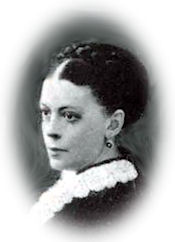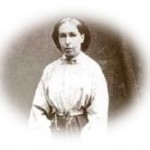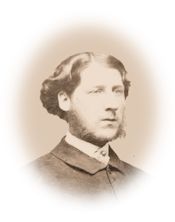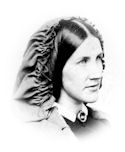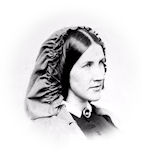By July 22 [Colonel] Joe [Howland] could not be kept away from the army, and only half well, he started back, probably in a hospital return boat, to the regiment at Harrison’s Landing. It was, however, only to break down again. The Historical Sketch of the 16th, prepared for their reunion at Potsdam in 1886, says: “Colonel Howland visited the regiment for the first time since the battle of Gaines’ Mill, His suffering was plainly seen, and the men showed their love for him by going to his tent and relieved each other’s guard, so that everyone might take him by the hand.”
Eliza writes him from Astoria, July 23:—
Dear Joe: It is the dull twilight of a dull November-like day and I am afraid you have had a cold, dreary passage. Once at Harrison’s Landing, however, cold weather will be better and healthier for you than hot. I suppose you must have arrived to-day. . . Georgy and I drove out yesterday with Robert, found Mary well and the children asleep. To-day we have had the full benefit of them within doors and have fought with the little rebel Bertha and played with the strange child Una, and studied the fascinations of the little new baby, most of the time. Georgy is an unusually sweet, bright little baby, and Una is a real beauty. Bertha’s affectionate greeting was : “I throw you in the bushes, and pull your head off for me dinner.”
. . . The Elizabeth at Harrison’s Landing is the Sanitary Commission store boat and has plenty of hospital clothing and supplies, and the Medical Director’s boat has plenty of farinaceous food, farina, arrowroot, etc. . . .

